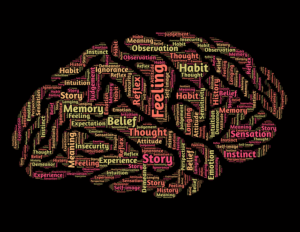Did you know that chronic stress can actually alter the way your brain functions? It’s a surprising fact that many overlook while maneuvering their busy lives. Understanding your stress triggers is essential, but it’s just the beginning of a broader approach to managing stress effectively. From mindful breathing to establishing a relaxing routine, there are expert-recommended strategies that can make a significant difference. You’ll want to explore these methods to discover how they can transform your daily experience and enhance your overall well-being.
Understand Your Stress Triggers
 Understanding your stress triggers is essential for managing your overall well-being. Stress awareness isn’t just about recognizing when you feel overwhelmed; it’s about identifying the specific situations, people, or tasks that lead to that stress. By pinpointing these triggers, you can develop strategies to handle them more effectively.
Understanding your stress triggers is essential for managing your overall well-being. Stress awareness isn’t just about recognizing when you feel overwhelmed; it’s about identifying the specific situations, people, or tasks that lead to that stress. By pinpointing these triggers, you can develop strategies to handle them more effectively.
Start by keeping a journal. Write down instances when you feel stressed, noting the context and your emotional responses. This practice enhances your emotional intelligence, allowing you to understand your feelings better and recognize patterns in your stress responses. For instance, do deadlines at work make you anxious? Does a particular conversation with a friend leave you feeling drained? Recognizing these triggers is the first step toward gaining control.
Once you’ve identified your stressors, you can create a plan. If certain situations consistently cause stress, think about ways to avoid or mitigate them. This might mean setting boundaries with people, breaking tasks into smaller steps, or even seeking support from others. Remember, it’s okay to ask for help.
Incorporating stress management techniques, like scheduling regular breaks or prioritizing self-care, can also be beneficial. By becoming more aware of what stresses you out, you empower yourself to take proactive steps towards a healthier, more balanced life.
Ultimately, understanding your stress triggers not only improves your emotional well-being but also enhances your ability to navigate life’s challenges with greater ease.
Practice Mindful Breathing
After recognizing your stress triggers, it’s time to explore effective coping strategies, and mindful breathing is one of the most accessible techniques you can incorporate into your daily routine. This practice helps you reconnect with the present moment, allowing you to respond to stress more calmly.
Start by finding a comfortable position, whether sitting or lying down. Close your eyes, if it feels comfortable, and take a deep breath in through your nose, feeling your abdomen expand. Hold that breath for a moment, then slowly exhale through your mouth, letting go of any tension.
Repeat this several times, focusing solely on your breath. This simple breathing technique can center your thoughts and ground you when stress arises.
Incorporating mindfulness exercises into your day doesn’t have to be time-consuming. Even a few minutes can make a difference. You can practice mindful breathing during breaks or while waiting in line. Just focus on your breath, noticing the sensations as you inhale and exhale.
If your mind wanders, gently guide it back to your breath without judgment.
Regular practice of these breathing techniques not only reduces immediate stress but can also enhance your overall well-being. By making mindful breathing a habit, you’ll equip yourself with a powerful tool to manage stress more effectively.
Incorporate Regular Exercise
When you’re feeling overwhelmed, incorporating regular exercise into your routine can be a game changer. It doesn’t have to be an elaborate plan; even small, consistent changes can make a big difference. Exercise not only helps you maintain physical health but also plays an essential role in reducing stress.
Start with cardio workouts, like jogging, cycling, or dancing, which can elevate your heart rate and release endorphins—the body’s natural stress relievers. You’ll enjoy significant cardio benefits, such as improved mood and increased energy levels. Just 30 minutes a day can help clear your mind and boost your overall well-being.
Don’t forget about strength training, either. Lifting weights or doing body-weight exercises can help you build muscle and improve your self-esteem. Plus, the focus required during strength training can serve as a form of meditation, pulling your mind away from stressors.
To make exercise a regular part of your life, find activities you enjoy. Whether it’s a group class, a solo run in the park, or a home workout video, the key is to stay engaged and motivated. Set achievable goals, and celebrate your progress along the way.
Establish a Relaxing Routine
Creating a relaxing routine can greatly enhance your ability to manage stress. By establishing a set of self-care rituals, you not only prioritize your well-being but also create a soothing structure for your day. Start by identifying activities that help you unwind, such as reading a book, taking a warm bath, or practicing gentle stretching. These rituals can act as anchors, guiding you toward tranquility amidst life’s chaos.
Set aside specific times for these activities to build consistency. For example, consider dedicating the first 15 minutes of your morning to a calming environment. Light a candle, play soft music, or brew your favorite herbal tea. This intentional space can help you shift from sleep to wakefulness with ease, setting a positive tone for the day ahead.
In the evenings, create a winding down routine. Dim the lights, turn off screens, and engage in a relaxing activity that promotes mindfulness. This might include journaling, sipping tea, or enjoying a quiet moment on your balcony.
It’s vital to disconnect from the hustle and bustle of daily life, allowing your mind and body to recharge.
Explore Meditation Techniques
Incorporating meditation into your relaxing routine can considerably deepen your stress reduction efforts. You don’t need to be an expert; just a few minutes a day can make a significant difference.
One effective technique is guided imagery. This involves visualizing a peaceful scene—like a serene beach or a quiet forest. Picture yourself there, immersing in the sights, sounds, and sensations. It helps distract your mind from stressors and allows you to relax deeply.
Another powerful method is the body scan. This technique encourages you to focus on each part of your body, starting from your toes and moving up to your head. As you pay attention to each area, notice any tension and consciously release it. This practice can foster a profound sense of connection between your mind and body, enhancing your overall well-being.
You might want to try these techniques in a quiet space where you won’t be disturbed. Set a timer for 5-10 minutes, close your eyes, and just breathe deeply. If your mind starts to wander, gently bring it back to your visualization or body awareness.
Connect With Nature
Spending time in nature can be a powerful antidote to stress, providing an opportunity to recharge and reconnect with yourself. Engaging in eco therapy practices fosters a sense of calm and well-being, allowing you to escape the pressures of daily life.
Here are some practical ways to connect with nature:
-
Nature walks: Take a leisurely stroll in your local park or nearby woods. Feel the ground beneath your feet and breathe in the fresh air.
-
Outdoor meditation: Find a quiet spot outside to meditate. Listen to the sounds of nature and focus on your breath, allowing your mind to quiet.
-
Gardening benefits: Get your hands dirty by tending to plants. Gardening not only nurtures your green thumb but also reduces anxiety.
-
Forest bathing: Immerse yourself in the sights, sounds, and smells of the forest. This practice can deepen your connection to the natural world.
-
Wildlife observation: Spend time watching birds or other wildlife. This mindfulness practice can lift your spirits and ground you in the moment.
You might also consider journaling about your experiences during these nature encounters. Nature journaling helps you reflect on your thoughts, feelings, and observations, enhancing your connection to the environment.
Whether it’s through hiking adventures or simply sitting under a tree, embracing the beauty of nature can greatly reduce stress and promote a healthier mindset.
Limit Screen Time
Many people often find themselves glued to screens, whether for work, entertainment, or socializing, which can contribute to heightened stress levels. If you’re feeling overwhelmed, it might be time for a digital detox. Cutting back on screen time not only helps reduce stress but also allows you to reconnect with yourself and your surroundings.
Start by setting boundaries. Designate specific times each day to step away from your devices. Try to establish screen-free zones, like the dining table or bedroom. This simple change encourages healthier habits and fosters more mindful interactions.
You’ll find that by limiting notifications and scrolling, you can reclaim your focus and energy.
Consider screen alternatives to fill your time meaningfully. Opt for reading a book, going for a walk, or even practicing mindfulness through meditation. Engaging in physical activities can be a fantastic way to elevate your mood and clear your mind.
If you enjoy socializing, invite friends or family for a game night or a casual dinner instead of a virtual hangout.
Engage in Creative Activities
Creative activities can be a powerful outlet for stress relief and self-expression. When you engage in creative pursuits, you tap into a flow that can help you forget your worries and focus on the present moment.
Whether you’re a seasoned artist or just starting out, there’s a multitude of ways to explore your creativity. Consider trying out some of these activities to ease your stress:
- Art journaling: Combine words and images to express your thoughts and feelings.
- Crafting projects: Create handmade items that bring joy and a sense of accomplishment.
- Music therapy: Listen to or play music that resonates with your emotions, helping you process them.
- Dance movement: Allow your body to move freely to music, releasing tension and boosting your mood.
- Photography walks: Capture the beauty around you, helping shift your perspective and appreciate the moment.
Additionally, you might explore DIY home decor to personalize your space or take cooking classes to find joy in preparing nutritious meals.
Creative writing can also be a therapeutic way to articulate your thoughts and experiences. Each of these activities provides a chance to unwind and connect with yourself.
Prioritize Sleep Hygiene
While it might seem challenging to carve out time for self-care, prioritizing sleep hygiene is essential for managing stress. A good night’s sleep can greatly improve your mood and resilience, making it easier to face daily challenges.
Start by creating a conducive sleep environment. Keep your bedroom cool, dark, and quiet. Consider using blackout curtains, earplugs, or a white noise machine to block out distractions.
Next, establish consistent bedtime rituals that signal to your body that it’s time to wind down. This could include activities like reading a book, taking a warm bath, or practicing relaxation exercises. Aim to go to bed and wake up at the same time every day, even on weekends. This helps regulate your body’s internal clock, making it easier to fall asleep and wake up refreshed.
Avoid screens for at least an hour before bedtime, as the blue light emitted can disrupt your natural sleep cycle. Instead, opt for calming activities that promote relaxation.
Limit caffeine and heavy meals in the hours leading up to bedtime, as these can interfere with your ability to fall asleep.
Conclusion
As you take these steps to unwind and relax, remember that even the great philosophers sought solace in simplicity. By understanding your stress triggers and embracing mindful practices, you’ll find balance amidst life’s chaos. Prioritize self-care, connect with nature, and let creativity flow—these are your keys to a calmer mind. Just like a gentle stream finds its way through obstacles, you too can navigate stress with grace. Start today, and watch your well-being flourish.





